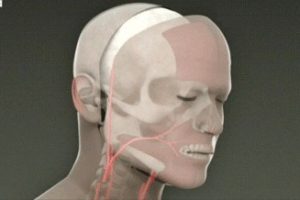MGH
Tumor microvesicles reveal detailed genetic information
The Massachusetts General Hospital (MGH) research team that first discovered tumor-associated RNA in tiny membrane-enclosed sacs released into the bloodstream by cancer cells has now found that these microvesicles also contain segments of tumor DNA,…
Generic drug may improve the effectiveness of cancer nanotherapies
Low doses of an inexpensive, FDA-approved hypertension medication may improve the results of nanotherapeutic approaches to cancer treatment. In a report in the early edition of Proceedings of the National Academy of Sciences, Massachusetts General …
Growth-factor-containing nanoparticles accelerate healing of chronic wounds
Massachusetts General Hospital (MGH) investigators have developed a novel system for delivery of growth factors to chronic wounds such as pressure sores and diabetic foot ulcers. In their work published in the Jan. 18 Proceedings of the National Ac…
Structure deep within the brain may contribute to a rich, varied social life
Scientists have discovered that the amygdala, a small almond shaped structure deep within the temporal lobe, is important to a rich and varied social life among humans. The finding was published this week in a new study in Nature Neuroscience and i…
Newborns with low vitamin D levels at increased risk for respiratory infections
The vitamin D levels of newborn babies appear to predict their risk of respiratory infections during infancy and the occurrence of wheezing during early childhood, but not the risk of developing asthma. Results of a study in the January 2011 issue …
Culturally sensitive treatment model helps bring depressed Chinese immigrants into treatment
A treatment model designed to accommodate the beliefs and concerns of Chinese immigrants appears to significantly improve the recognition and treatment of major depression in this typically underserved group. In a report in the December American Jo…
Half of those travelling internationally not aware of potential health risks
More than 30 million people in the United States travel to resource-limited areas of the world each year. This global mobility may contribute to the spread of infectious diseases — such as influenza, measles, and meningitis — and may also put i…
Intestinal enzyme helps maintain population of beneficial bacteria
An enzyme that keeps intestinal bacteria out of the bloodstream may also play an important role in maintaining the normal microbial population of the gastrointestinal system. Since the loss of beneficial bacteria that usually results from antibioti…
Second-generation device more effective in capturing circulating tumor cells
A redesigned version of the CTC-Chip — a microchip-based device for capturing rare circulating tumor cells (CTCs) — appears to be more effective and should be easier to manufacture than the original. Called the HB-(herringbone) Chip, the ne…
Microfluidic device allows collection, analysis of hard-to-handle immune cells
A team led by Massachusetts General Hospital (MGH) scientists has developed a new microfluidic tool for quickly and accurately isolating neutrophils — the most abundant type of white blood cell — from small blood samples, an accomplishment that …
Getting through the matrix
The best cancer drugs in the world are not much good if they cannot get to tumor cells. That problem has been challenging cancer physicians and researchers for years because the physical structure of many tumors can prevent anticancer agents from reaching their targets. In a study appearing in the June issue of Nature Medicine, researchers from Massachusetts General Hospital (MGH) describe a new technique for assessing the permeability of tumors and a promising new way of improving tumors’ accessibility to drugs.

